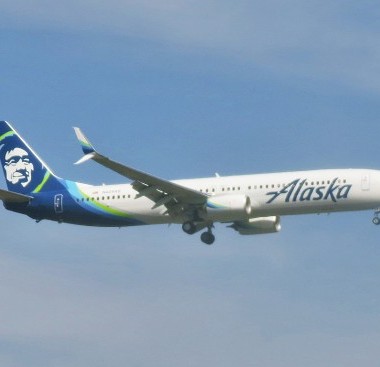JetBlue’s profit warning fuels concern over US travel demand
JetBlue Airways Corp. slashed its full-year profit forecast over signs of a slowdown in domestic demand, becoming the latest carrier to warn of a shift toward international routes and renewing questions about the durability of a post-pandemic surge in US travel.
The company also said Tuesday that it would earn less this quarter than analysts expected, echoing comments from Alaska Air Group Inc. last week that waning demand and fares would hurt near-term results.
“The guidance is extremely disappointing,” Helane Becker, a TD Cowen analyst, said in a note about JetBlue. “The current revenue environment where domestic fares are trending lower is driving the big reduction in earnings expectations.”
The shift has been unexpectedly rapid for US airlines, after industry leaders for months talked of a boom in demand that was expected to persist even through an uncertain economy. As more countries have relaxed pandemic-era policies, travelers have increasingly opted for overseas flights at the expense of domestic routes.
Along with Alaska’s warning, Southwest Airlines Co., the largest carrier focused predominantly on US flights, spooked investors last week after it didn’t say whether it expected an early-summer travel surge to carry into the second half of the year.
JetBlue shares fell 8.4% at 12:20 p.m. in New York, dragging down other US airlines. The stock earlier fell as much as 10%, the biggest intraday decline since June 2022.
The carrier does offer some international flights, including routes to London and Paris. While growth there is a positive for JetBlue, “this segment appears unlikely to be large enough to offset the carrier’s domestic challenges,” Stephen Trent, a Citi analyst, said in a report.
Guidance Cut
Adjusted full-year earnings will be 5 cents to 40 cents a share, compared to the carrier’s earlier outlook for 70 cents to $1, JetBlue said Tuesday in a statement. Revenue for 2023 will increase as much as 9%, compared with its earlier outlook for a jump in the high single digits to low double digits on a percentage basis.
The company expects the wind-down of the Northeast Alliance with American Airlines Group Inc. in the Boston and New York City areas, along with weather and air-traffic control delays in the northeast, to each reduce 2023 profits by 20 to 25 cents a share, with the shift in travel demand to outside of the US accounting for another 15 to 20 cents.
Weather issues and air-traffic volumes should dissipate into the fall, and JetBlue said it’s already working with the Federal Aviation Administration to help reduce ATC restrictions next summer. Demand is also expected to shift back to domestic markets once summer vacations end, especially closer to the winter holidays, JetBlue said. Moving NEA-related capacity to other markets won’t show improvement until 2024’s first quarter.
Adjusted profit in this quarter will be flat to a loss of 20 cents a share, compared with 40 cents on average from analyst estimates compiled by Bloomberg. Revenue will fall as much as 8% year over year.
“While we remain on track to deliver a profitable year and record revenue performance, we are taking action, including redeploying capacity, to mitigate these current challenges and improve margins,” Chief Operating Officer Joanna Geraghty said in the statement.
Adjusted earnings were 45 cents a share in the second quarter, a penny better than analysts’ estimates. Revenue of $2.6 billion met expectations.
Steps that JetBlue took in expectation of summer problems — including a 10% flight reduction in New York — were overwhelmed by worse weather than expected, including 30 straight days of irregular operations in June and early July, executives said on a conference call.
“We are seeing ATC programs stay in place longer than we’ve ever seen before for similar weather events, which is driving hundreds of delayed flights a day for JetBlue alone,” Chief Executive Officer Robin Hayes said. The airline is expecting such disruptions in August to be similar to July, he said, and related costs for canceled flights and refunds are “not sustainable over the long term.”
Similar Stories

Lufthansa Cargo and Maersk launch cooperation to support decarbonization of airfreight
View ArticlePort Authority of New York and New Jersey airports see spookily spectacular surge in October
Port of New York and New Jersey surpasses 700,000 TEUs for eighth consecutive month
View Article
airBaltic Cargo partners with cargo.one to accelerate and enhance its digital sales
View Article
Chapman Freeborn agrees partnership with Portuguese multimodal logistics specialist
View Article
Cathay is ready for the commissioning of the three-runway system at Hong Kong International Airport
View ArticleUnited Airlines Holdings Inc. upgraded To ‘BB’; outlook stable
• United Airlines Holdings Inc. is on track to generate credit measures in line with our previous upside rating threshold this year, and we expect improvement in 2025. • The…
View ArticleGet the most up-to-date trending news!
SubscribeIndustry updates and weekly newsletter direct to your inbox!





